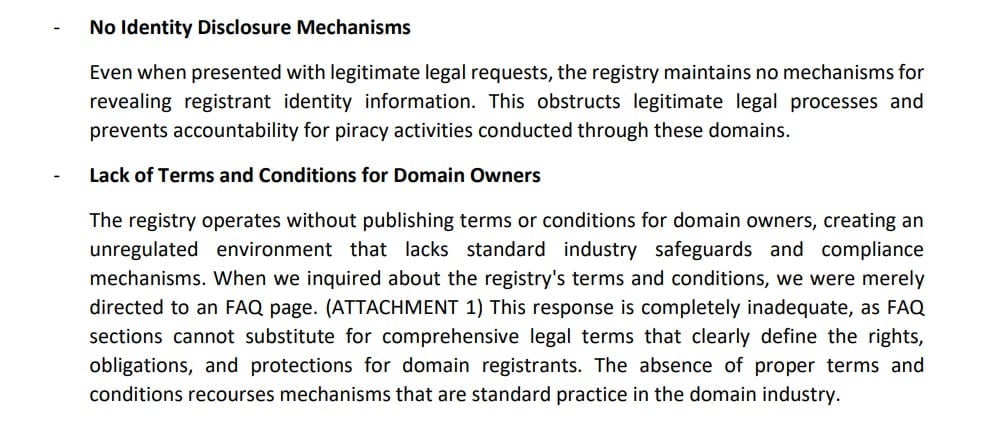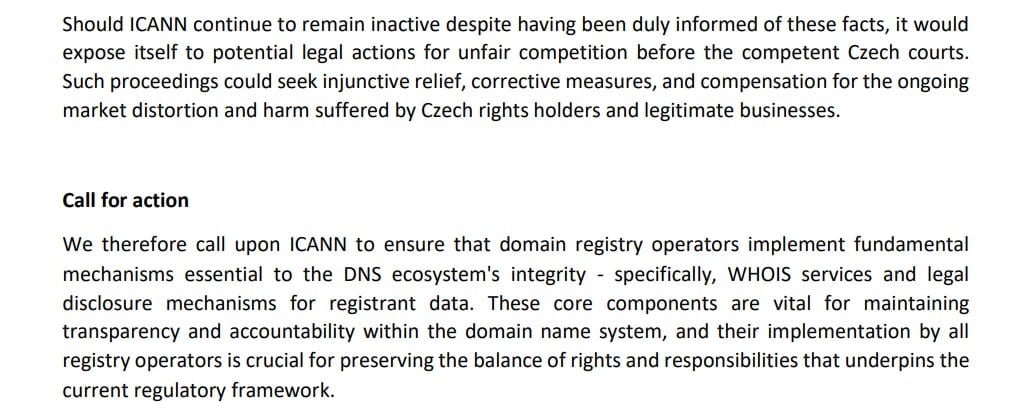 Since 1997, the Tonga Network Information Center (Tonic) has been responsible for the .to top-level domain
Since 1997, the Tonga Network Information Center (Tonic) has been responsible for the .to top-level domain
This country-specific extension is linked to the Kingdom of Tonga but the Tonic registry is incorporated in the United States and operating from the California city of Burlingame.
Compared to more than 160 million .com registrations, use of .to is relatively modest with just over 60,000. Interestingly, however, .to domain names appear to be somewhat of a magnet for pirate site operators.
This unusual attraction is a thorn in the side of rightsholders. Earlier this month, the MPA listed the registry in its overview of notorious piracy markets submitted to the U.S. Government, highlighting Tonic’s alleged inaction over piracy-related issues.
Warezio Sees Tonic as a Piracy Haven
Today, the .to registry is again at the center of a complaint. The Czech anti-piracy firm Warezio, which works on behalf of many local rightsholders, wrote a letter to the Internet Corporation for Assigned Names and Numbers (ICANN), urging it to take action, or else.
“As an anti-piracy company, we frequently encounter .to domains in our enforcement activities, which has given us firsthand insight into the registry’s problematic practices. This is not a coincidence but a direct result of the registry’s operational approach that prioritizes anonymity over accountability,” Warezio writes.
Warezio’s letter complains that the Tonic registry lacks basic transparency and accountability mechanisms. For example, there is no public Whois database and no formal terms and conditions for domain owners, which frustrates anti-piracy actions.

The letter adds that the .to registry also lacks a dispute-resolution mechanism, does not publish sufficient contact information, and fails to comply with European privacy legislation.
Warezio Threatens ICANN with Legal Action
While complaints about Tonic are not new, Warezio addresses ICANN directly and suggests that the organization can be held legally responsible under the Czech Republic’s unfair competition law.
Warezio argues that by “knowingly tolerating a registry operator that facilitates unlawful commercial activities,” ICANN risks being regarded as an “auxiliary participant” in the alleged unfair competition that takes place through the .to domain ecosystem.
“Should ICANN continue to remain inactive despite having been duly informed of these facts, it would expose itself to potential legal actions for unfair competition before the competent Czech courts,” Warezio writes.
“Such proceedings could seek injunctive relief, corrective measures, and compensation for the ongoing market distortion and harm suffered by Czech rights holders and legitimate businesses.”

Warezio calls on ICANN to require domain registry operators to provide Whois data and take additional measures to guarantee transparency and accountability. This applies to Tonic, but also more generally to other registries that have similar shortcomings.
“The internet community deserves domain registries that balance legitimate privacy concerns with the need for accountability and legal compliance. We trust that ICANN will take swift and decisive action to address these critical issues.”
The anti-piracy outfit demands a response within seven days. If no action is taken, it reserves the right to follow up on the unfair competition claims.
ICANN’s Limited Authority Over ccTLDs
ICANN has yet to respond to the letter, but Warezio’s allegations appear to go beyond how the organization sees its own role in the domain name ecosystem.
Warezio wants ICANN to enforce new standards on the .to registry but ICANN has repeatedly stated that it lacks the authority to do so. According to ICANN, its compliance department “does not have contract authority to take compliance action against ccTLD operators.”
ICANN has significant influence over generic top-level domains (gTLDs), such as .com and .net, accrediting registrars and overseeing relevant policies for these domains. In contrast, country-code top-level domains (ccTLDs) operate differently.
These ccTLDs and their registries operate under local laws and regulations. This also applies to the implementation of policies concerning Whois requirements and domain name disputes.
“The ccTLD policies regarding registration, accreditation of registrars and Whois are managed according to the relevant oversight and governance mechanisms within the country, with no role for ICANN’s Compliance department in these areas,” ICANN writes.
Notably, the anti-piracy outfit is not threatening to take legal action against Tonic directly. At least, there is no mention of any direct threats against the registry or Tonga’s authorities.
Instead, Warezio’s letter appears to challenge ICANN’s policy, suggesting that it can be held liable for ccTLD-related issues under the Czech Republic’s unfair competition law. Whether this approach will work is unclear, but if it results in a legal battle, that would certainly be one to watch.
—
A copy of the letter, sent by Warezio’s CEO Jakub Hájek to ICANN’s legal department, is available here (pdf). This also includes more detail on a potential claim against ICANN.
From: TF, for the latest news on copyright battles, piracy and more.
Powered by WPeMatico
